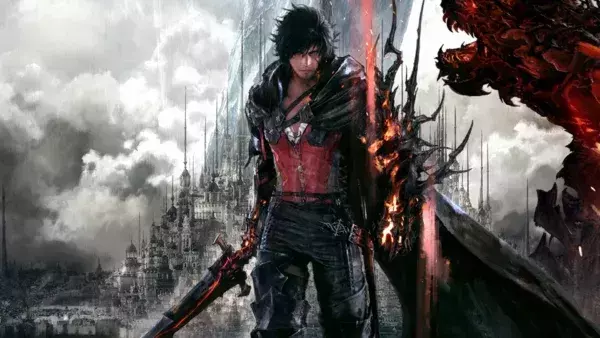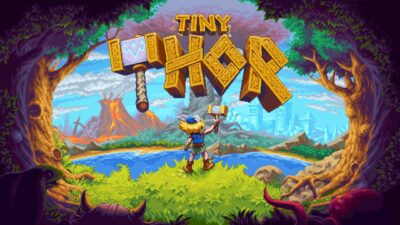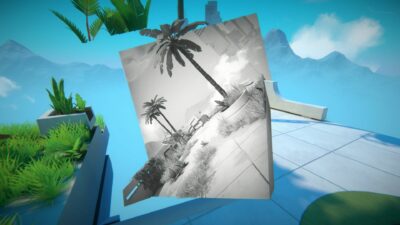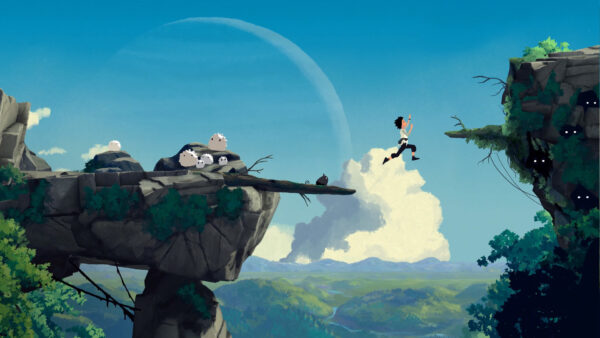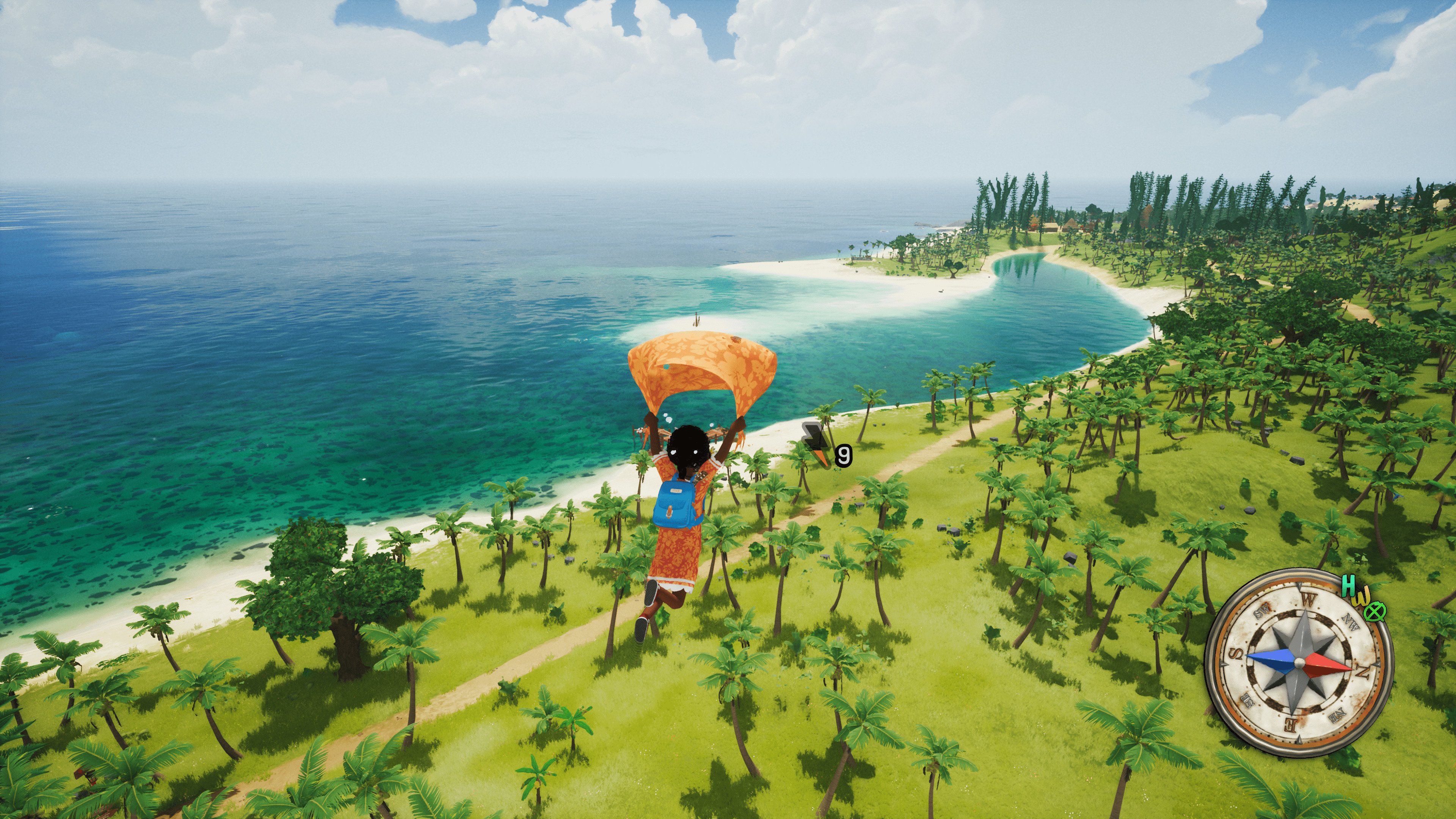
Tchia offers up a tropical open world getaway inspired by New Caledonia, though it isn’t quite the wholesome Zelda-like it appears to be. Our review…
Goodness knows I could do with a holiday, even just a virtual one. That’s one of the immediate appeals of Tchia’s sunkissed tropical setting, heavily inspired by New Caledonia, an archipelago in the Southwest Pacific Ocean.
Tchia offers more than a spot of virtual tourism, however, since developer Awaceb’s two co-founders, and a significant proportion of the development team, are also from New Caledonia. The game was made in collaboration with the local community, with the voice acting performed in a mixture of both French (New Caledonia’s official language) as well as its indigenous tongue, Drehu. As such, there’s a real flavour of authenticity, and even before you start the game, a special note from the developer emphasises that Tchia is a love letter to their native home.
There’s a strong Breath of the Wild vibe to Tchia’s open world, with stamina, gliding, and the ability to climb just about anything all present and correct, though using a raft to sail around the archipelago naturally also stirs up the spirit of Wind Waker. These similarities to Zelda pale in comparison, however, to the titular character Tchia’s unique Soul Jumping ability.

In its more relaxing moments, playing Tchia really does feel like a tropical holiday. Credit: Awaceb.
With it, you can possess and control a nearby animal or inanimate object. Do so and you’ll acquire their unique abilities, such as sprinting across the island as a stag or flying around as a bird. It’s easily the most fun aspect of the game, even though in practice it’s a bit limited in function. Don’t get me wrong, it’s quite amusing being able to poop on command as a bird, but does it help you overcome any of the puzzles or challenges you encounter? Not really. I think there was only one objective where I actually needed to Soul Jump into a specific creature, but otherwise the real draw of the ability is being able to Soul-throw.
Essentially, this involves aiming the object you’re controlling like a slingshot (ironically, Tchia’s actually given a slingshot at the start of the game, which feels obsolete in comparison) and then launching it into the air, while Tchia also re-materialises. The cool part is that you can immediately Soul Jump again and take control of the object you just sent airborne. Better still, you can Soul Jump into the object again and repeat the trick, provided your gauge hasn’t run out, to reach incredible heights or distances.
There’s usually no shortage of coconuts or rocks that can be used this way (though it never hurts to stow a few spare objects in your backpack), reinforcing my belief that good traversal mechanics can elevate any open world game. It’s such a fun skill to exploit that I can overlook Tchia’s inability to run, her floaty jump, or the so-so climbing mechanic, which is limited by a stamina gauge that takes ages to upgrade – most of the stamina fruits you find only increase the gauge by a single point.

Tchia’s Soul Jump ability does much to separate it from other Zelda-likes. Credit: Awaceb.
Even the satisfying feel of traversal is hampered by how annoying it is to get your bearings. Despite giving you a compass and map, the game rarely pinpoints exactly where you are unless you happen to pass a signpost. When bringing up the map, Tchia draws a large circle to give a vague idea of where you currently are, and while you can place a pin as a point of interest, which shows up on your compass, it won’t tell you how far or close you are until the pin inevitably changes orientation on the compass to indicate you just went past it.
You might argue this is to encourage you to explore without constantly following a set path, as well as why fast travel is only limited to fixed docks. It’s ironic, then, that Tchia still seems happy to repeat the Ubisoft formula where reaching certain peaks will result in the game spitting out icons of all the nearby collectibles and challenges for you to tick off anyway.
On that note, the main story objectives also threaten to turn into a series of uninspiring fetch quests, and there’s even a feeling of ‘baby’s first Far Cry’ once combat’s introduced. The principal enemies, Maano, are pieces of fabric possessed by spirits which can be destroyed with fire, giving them a harmless, innocent vibe similar to Tearaway’s scrap paper enemies. There are usually lanterns or jerry cans lying around for you to chuck at them, though the more efficient method is to possess and then Soul-throw these objects at them. Combat soon becomes fairly one-note compared to, say, Breath of the Wild, though; flushing out small camps is fine, but your interest may dwindle when you’re asked to tackle larger bases. Most disappointing is a finale that plays to none of Tchia’s strengths, with the game trapping you in a dark, cramped environment with no ability to Soul-Jump – instead, you have to rely on platforming and the slingshot I’d all but forgotten about.

Tchia’s combat typically involves burning its enemies to death. Credit: Awaceb.
I wasn’t sure what to make of the narrative’s tonal shifts, either. Tchia veers from being a light-hearted, wholesome game about another culture to unexpectedly darker territory that conjures up tropes of unstable regions ruled by military dictatorships that I’m surprised the developers would want associated with even a fictionalised version of New Caledonia. On one hand, the game coddles you so that Tchia never faces any real peril, from a health gauge that’s actually just her stamina meter, to the option to skip any gameplay section you don’t like. At the same time, you’ll also witness a few shocking (comparatively speaking) moments of onscreen violence as well as a few tragic deaths.
Ultimately, these jarring moments are less likely to linger in the memory compared to the times you’re just soaking up New Caledonian life, be it helping prepare food, carving totem statues, calmly balancing rocks, getting involved in local rituals that erupt with music, dance, and song, or just expressing yourself with all the different unlockable cosmetics you can find. Even if Tchia doesn’t quite escape the pitfalls of modern open world design, there’s still a lot of heart here. And yes, playing it does leave you feeling like you’ve been on holiday.
Highlight
In another nod to Zelda, playing certain unlocked melodies with your ukulele will have useful effects, such as changing the weather or time of day. Music also being a strong cultural tradition of New Caledonia, the story also includes many rhythm-based mini-games, though these sections can also be autoplayed if you prefer to sit back and just enjoy the moment.
Verdict
A soulful adventure with a fun method of traversal, Tchia isn’t quite the Zelda-lite you might expect.
74%
Read more: Tchia preview | Inside Awaceb’s ambitious island adventure


